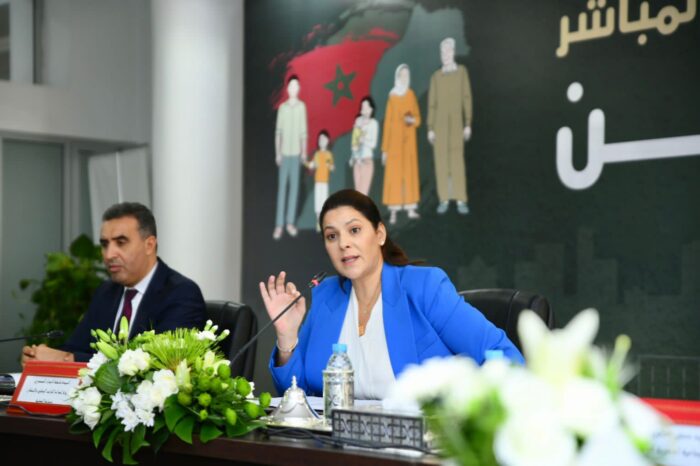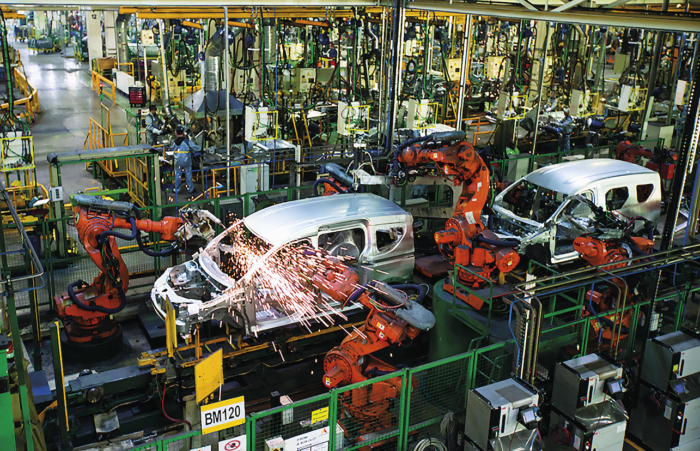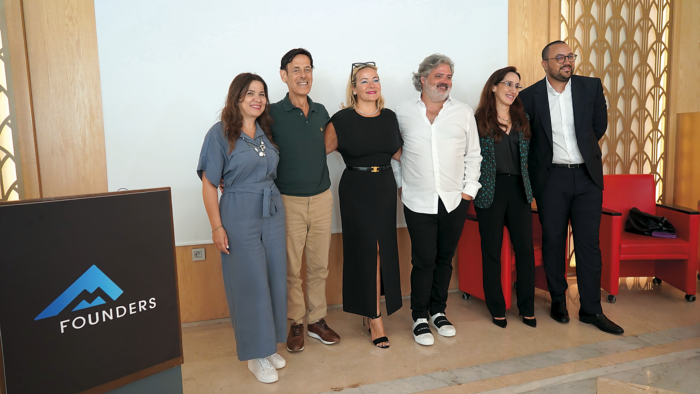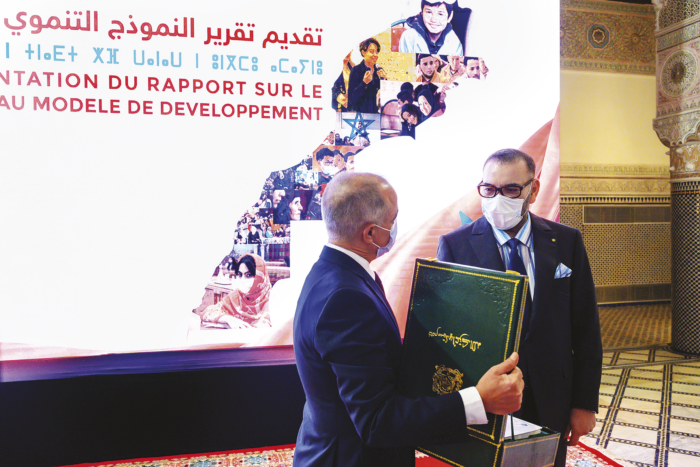Investments from Moroccan expatriates in Morocco are not sufficient. As Mohammed VI emphasized on November 6, « It is inconceivable that their contribution to the volume of private national investments is limited to 10%. »
According to Hassan Edman, a professor at the Faculty of Legal, Economic, and Social Sciences in Agadir, several reasons explain the weakness of this contribution. He cites, on one hand, a « lack of information and expertise in innovative or highly technical sectors, » which limits « the optimal utilization of this economic potential. »
On the other hand, he mentions « the current tax frameworks and incentive measures, » which « lack pragmatism and do not offer enough attractiveness to encourage significant or high-risk investments. »
Furthermore, « cultural and cognitive factors also play a key role: the Moroccan entrepreneur, even abroad, tends to drift away from the Schumpeterian model (referring to economist Joseph Schumpeter, ed.) of innovation and risk-taking. Thus, without more targeted and tailored incentives, cognitive barriers arise, limiting the diversification of their investments and hindering their expansion into more productive and profitable economic sectors. »
The obstacles to investment « persist (…): corruption and favoritism, particularly in the processes of granting licenses, permits, and public contracts, as well as complexities related to the land tenure system. »
The obstacles to investment in Morocco, whether from nationals, foreigners, or Moroccan expatriates, are « similar and persist despite official statements and reforms. »
Among the « most commonly reported issues in public, private, and NGO reports are corruption and favoritism, particularly in the processes of granting licenses, permits, and public contracts, as well as complexities related to the land tenure system, especially for collective lands, » the professor further notes.
Real estate n°1
According to a study by the High Commission for Planning (HCP) on the « Determinants of Transfers and Investments by Moroccan Migrants Abroad, » published in 2022, only 2.9% of current migrants reported having carried out investment projects in Morocco, with a higher rate among men (3.4%) than women (1.8%).
Real estate remains by far the preferred investment sector for Moroccan expatriates, representing 40.7% of investments. It is followed by agriculture (19%), construction (16.6%), commerce (5.5%), and restaurants and cafés (4.5%)…
Real estate remains by far the preferred investment sector for Moroccan expatriates, accounting for 40.7% of their investments. It is followed by agriculture (19%), construction (16.6%), commerce (5.5%), restaurants and cafés (4.5%), and other services (6.0%).
When considering real estate more broadly, including construction and the acquisition of non-agricultural land, the sector reaches 60.4% of total investments made by Moroccan expatriates. They view it as a « safe, long-term investment » because real estate remains a reliable asset « due to its stability, growing demand, and relatively low risk compared to other sectors. » These investments « not only offer a hedge against inflation but also provide a steady source of income, » explains Hassan Edman.
This trend is further reinforced by the fact that, until recently, efforts to promote investment among Moroccan expatriates were largely focused on real estate, through expos and related events.
« The post-Covid economic recovery and incentive measures, such as the housing assistance program, have also helped revive the sector. This program, which facilitated access to credit and encouraged investment, particularly benefited Moroccan expatriates, drawn by the favorable conditions and competitive offers in the Moroccan real estate market, » notes the professor.
According to Fatima Ezzahra El Mansouri, Minister of National Land Planning, Urban Planning, Housing, and City Policy, out of the 28,458 people who benefited from this program as of November 5, 26% were Moroccan expatriates.
Productive sectors in search of investors
Since real estate is considered a non-productive sector, Morocco has been trying for years to persuade its citizens to invest elsewhere—so far, without success. The MDM Invest program, managed by the Central Guarantee Fund (CCG), stands as proof of this challenge.

According to the Economic, Social, and Environmental Council (CESE), the weakness of banking support and the scarcity—or even absence—of seed funding for Moroccan expatriates resulted in only « 48 approved applications » under the MDM Invest program between 2002 and 2022.
In its initial version, the program offered Moroccan expatriates with projects in these sectors the following financial structure: a personal contribution representing 25% of the project cost, a state subsidy of 10%, and bank financing covering 65%, provided the total amount fell between 1 and 5 million dirhams.
However, according to the Economic, Social, and Environmental Council (CESE), the lack of banking support and the scarcity—or even absence—of seed funding for Moroccan expatriates resulted in only « 48 approved applications » between 2002 and 2022.
« To address this, we have worked with the CESE and Tamwilkom to revise the program’s access conditions and allow for greater flexibility, » explains Karim Amor, president of MeM by CGEM, an economic region established in 2017 by the employers’ federation, « exclusively dedicated to Moroccan entrepreneurs and high-potential individuals abroad. »
MDM Invest revised
Last July, Tamwilcom, the brand name of the National Company for Business Guarantee and Financing (SNGFE, formerly CCG), announced a revamped version of the MDM Invest program. The updated program now offers eligible businesses an investment bonus of 10% of the project cost, with a cap of 5 million dirhams and a minimum personal contribution of 20% in equity.
MDM Tamwil, presented alongside the program, includes a loan portion guaranteed by the SNGFE, covering up to 40% of the project cost. « Another advantage is that the interest rate is only 2.5% per year, excluding taxes, » explains Karim Amor.
Another product, called MDM Tamwil, was introduced alongside the program. It offers a loan portion guaranteed by the SNGFE, covering up to 40% of the project cost, without exceeding the bank’s share. The personal equity contribution must be agreed upon between the bank and the business.
« This is also new. MDM Tamwil is a co-financing option, as it allows Moroccan expatriates to invest jointly with banks in projects for the creation or expansion of businesses in Morocco. The eligible sectors are the same as those under MDM Invest. However, this time, the investment project must start at 2.5 million dirhams and can be carried out by a Moroccan expatriate alone or in partnership with Moroccan or foreign investors. Another advantage is that the interest rate is only 2.5% per year, excluding taxes. As for the bank loan terms, they are freely negotiable, » explains Karim Amor.
« It should be noted that between 25% and 30% of the total transfers from Moroccan expatriates are placed in savings, which banks then invest as loans to the economy, » notes Karim Amor.
Is this enough to attract more investments from Moroccan expatriates? « Many promising avenues are already underway. The first involves collective investment schemes in transferable securities (OPCVM). It should be noted that between 25% and 30% of the total transfers from Moroccan expatriates are placed in savings, which banks then invest as loans to the economy, » says Karim Amor.
« Other solutions have also been introduced, such as the project banks prepared by the Ministry of Industry. These projects are open to everyone but may particularly interest Moroccan expatriates who can invest or co-invest in them, » he continues.
« These projects aim to replace imports while also aligning with Morocco’s existing industries, such as automotive, aerospace, textiles, and other emerging sectors the country is promoting. These are areas where operators already exist but where certain parts of the value chain still need to be completed. For example, in the automotive sector, Morocco could aim to increase the integration rate from 30% to 80%, » explains Karim Amor.

« There are also projects that extend the activities of Moroccan expatriates in Morocco. These could involve production or service companies. From this perspective, the Ministry of Investment and the Ministry of Industry have data that allows project holders to assess their position in the local market. And when it comes to outsourcing part of their own production to Morocco, expatriates benefit from attractive industrial zones across the country, competitive production costs, and a highly skilled workforce, » assures our source.
According to Karim Amor, another category of investments « driven by dedicated and transparent vehicles is also a solution. For example, major infrastructure projects or production tools financed by investor groups through qualified vehicles, particularly those approved by the Mohammed VI Fund. There are also funds dedicated to startups and SMEs, including Tamwilkom, the kingdom’s investment and guarantee arm, operating through the banking network and a network of qualified incubators, » he adds.
Significant challenges
Karim Amor also mentions MFounders, a « business angels club, mostly composed of members of the diaspora, who are skilled and committed to supporting startups led by Moroccans, both in Morocco and internationally. »
Its founder and president Ilan Benhaïm, explained to TelQuel last July, how the club operates: each startup that successfully convinces the investment committee will be assigned a « lead investor. » This lead investor will assist the startup in preparing its investment file and presenting it to the business angels.
Finally, if MFounders decides to partner with a project, a company is created where the club contributes its share, and the lead investor personally holds 20% of the shares. « This gives them a greater incentive to ensure success, » emphasized Ilan Benhaïm, adding: « This is what makes MFounders unique, along with the fact that no commission is charged during the fundraising process. »
Along the same lines, Hassan Edman mentions the Maghrib Belgium Impulse initiative, launched in partnership with the Belgian agency ENABEL, to support Moroccan expatriates living in Belgium throughout their projects, from creation to development.
However, « despite these promising initiatives, significant challenges remain in fully leveraging the potential of Moroccan expatriates. Simplifying administrative procedures, particularly regarding permit acquisition and land regularization, is crucial, as these complex processes often act as barriers for investors, » regrets the professor.

Furthermore, « additional measures, such as strengthening tax incentives and developing training programs to better prepare Moroccan expatriates, would be beneficial. Finally, more active support from embassies and consulates in networking entrepreneurs could help attract more diversified and high-quality investments, thus contributing to Morocco’s economic dynamism, » he concludes.
Need for a “Comprehensive Policy”
Karim Amor, however, believes that Moroccan expatriates do not necessarily need to be incentivized but rather « simply presented with a comprehensive Moroccan offer they can evaluate as worthwhile. As Moroccans, they should feel that the necessary conditions are in place for them to extend their traditional investments from wherever they are. »
Moroccan expatriates « view Morocco as a land of opportunities. They need to find a market, a simplified administration, transparency, and competitive production factor costs »
Moroccan expatriates « see Morocco as a land close to their hearts, of course, but above all as a land of opportunities. They need to find a market, a simplified administration, transparency, and production factor costs that allow them either to distribute in Morocco or re-export, » explains Karim Amor.
« In this regard, they are not asking for anything different from what other countries offer. They just want the process to be made easier for them, » adds the CGEM official. « They are motivated, and now it’s up to us to show them that things can flow smoothly, especially in terms of administrative procedures and information transparency. Morocco already offers this today, thanks to AMDIE, the CRI, CGEM, and Tamwilkom. Banks also play a major role, as they support the entire system, » he emphasizes.
Rachid Guerraoui, a Moroccan-French-Swiss computer scientist and former member of the CSMD, shares a similar perspective. For this professor at the Faculty of Computer Science and Communications at the École Polytechnique Fédérale de Lausanne and UM6P, « transparency is extremely important. » He adds, « It’s not just about explaining how things should be done when investing or creating a startup but ensuring that information is fully accessible. Sometimes, the issue is not a lack of mechanisms—they may not even be necessary—but rather the ability to know exactly what steps to take, which taxes to pay, and the specifics of labor laws. »
« Making this information clear and accessible is crucial. Maintaining transparency, especially for public tenders, is essential. Sometimes, people say: ‘I came, but it wasn’t what I expected.’ So, we must avoid making false promises, » insists Rachid Guerraoui.
Promoting expertise
The CESE also stated in its report that « organizing the transfer of expertise and actively encouraging exchanges and co-creation with Moroccan expatriate talents in all fields—scientific, academic, industrial, as well as in the arts and culture—is essential. »
« The opportunity to access a job aligned with their degree and matching their career ambitions is one of the main reasons why students do not return to Morocco »
Many Moroccan students, across all fields, decide to settle in their host countries after completing their studies. « The opportunity to access a job aligned with their degree and career ambitions is one of the main reasons for not returning to Morocco, » explains sociologist Hicham Jamid, author of a thesis on students and highly skilled migrants in France.
« Difficulties integrating into positions that match their professional and salary expectations in Morocco are a key factor in their decision to remain abroad, » he emphasizes.
How can these skilled professionals abroad be convinced to return to Morocco? According to Ali Ben Lmadani, a former Moroccan expatriate and founder of ABL Aviation, a company specializing in aircraft leasing, « It is essential to create a favorable environment, both professionally and personally. When I decided to settle in Morocco with my family, it wasn’t just out of patriotism but also because I noticed positive changes in the local ecosystem, including a growing openness to investment and innovation. Moroccan talents abroad possess unique skills and experiences that Morocco must learn to value. »
He adds: « The government and private sector have a key role to play by creating concrete incentives: attractive tax policies, modern infrastructure, and a stable legal framework. Beyond economic incentives, it is also crucial to develop a long-term vision for strategic sectors. In aerospace, for example, Morocco’s rise as a regional hub, highlighted by events like the Marrakech Air Show, shows the country’s ability to compete with well-established markets. »
For him, « the return of talent is not just a career matter but also one of belonging and quality of life. » He adds, « Personally, I realized that despite all the comfort one can find abroad, nothing replaces the feeling of being home. »
To further mobilize Moroccan expatriate expertise for the country’s development, the CSMD has also made several recommendations. These include the implementation of incentive-based approaches « to attract highly qualified Moroccans abroad working in cutting-edge sectors such as ICT, biotechnology, and renewable energy. »

It also proposed the creation of a database of Moroccan expatriates accessible to both private and public Moroccan institutions. The National Mechanism for Mobilizing the Skills of Moroccans Residing Abroad, set to be launched under the leadership of the Mohammadia Foundation, seems to address this initiative.
The commission « considers it essential to mobilize Moroccan expatriates for the development of scientific research, R&D, and innovation activities, given the expertise acquired by the diaspora in these fields. Achieving this objective requires certain prerequisites, including structuring the scientific research ecosystem and aligning it with the country’s strategic priorities through clearly defined national programs, governed transparently and subject to regular monitoring and evaluation, » the report states.
Showcasing opportunities
« There are companies, for example in Casablanca or Tangier, that pay very well (…) and are actively seeking specialized talent but cannot find it. Meanwhile, in France, Switzerland, and the United States, most Moroccans are unaware that these opportunities exist »
« There are definitely some very interesting things happening. For example, there are companies in Casablanca and Tangier that pay very well, and many Moroccans don’t even know about them. I’m not saying salaries should be disclosed, but it would be good to highlight companies actively seeking specialized talent and struggling to find it. In France, Switzerland, and the United States, most Moroccans are unaware that such career opportunities exist. Showcasing these possibilities would be significant, » says Rachid Guerraoui.
« If we implement complex mechanisms to attract a few talents but fail to ensure they align with reality, the result can backfire. Imagine some professionals move to Morocco and end up disappointed—they would spread negative feedback about the country. That would be a shame, especially since there are indeed great opportunities in education and research. Mohammed VI University offers very competitive salaries for professors and researchers, as do UIR and the EuroMed University of Fez. Even in Moroccan public universities, faculty salaries are generally quite attractive, » he emphasizes.
Contributing from afar
Rachid Guerraoui also explains that, in his « small way, » he tries to engage young Moroccans in scientific fields.
« For example, on November 28, I will be giving a lecture at École Polytechnique in Paris, particularly aimed at the many Moroccans studying there. I regularly give lectures at École Polytechnique in Lausanne, where many Moroccans are also present. I’ve even been to Imperial College London. I try to raise awareness about the career opportunities available in Morocco. »
He continues: « They can even contribute to this development from outside Morocco. Those holding leadership positions in major French, British, or American companies can establish branches in Morocco, much like how Indian professionals have helped create subsidiaries of large U.S. firms in India, » the professor points out.

Rachid Guerraoui often repeats this point during his talks: Moroccan expatriates can sometimes be more « useful » where they are. « Returning to Morocco is not necessarily the best way to invest in the country. This is what I try to explain to young Moroccan graduates from top schools—that, at least initially, they should excel where they are, get promoted, and take on leadership roles. They shouldn’t return to Morocco immediately after graduating, » he concludes.
Written in French by Ghita Ismailli and Leila Chik, edited in English by Eric Nielson
Recommendations: Moroccan expatriates as key players in the new development model
In its report submitted to King Mohammed VI on May 25, 2021, the Special Commission on the Development Model (CSMD) dedicated a section to Moroccans around the world (MDM).
It emphasized the need to « maintain and strengthen » the flow of transfers from MDM to Morocco by developing financial products better suited to their objectives, particularly for « new generations. »
« Beyond transfer flows, significant importance should be given to encouraging investments from MDM in Morocco through a comprehensive and integrated policy focused on support mechanisms and connecting them with project leaders in Morocco. This should be complemented by a strong and consistent communication effort to clarify the national regulatory and procedural framework while providing useful information on investment opportunities in Morocco, by region and sector, » the commission recommended.
Recommendations: opening the Mohammed VI Fund to Moroccan expatriates (MDM)
To encourage productive investments, the CESE recommended « actively opening the Mohammed VI Investment Fund to contributions from Moroccan expatriates (MDM) » and/or establishing a dedicated investment fund aimed at « allocating resources to activities with positive social and environmental impact, venture capital, and the social and solidarity economy. »
According to the council, led by Ahmed Reda Chami, efforts should also focus on « encouraging Moroccan financial institutions to develop attractive complementary savings and retirement products specifically for Moroccan expatriates (…) enhancing multi-channel options to facilitate their transfers and (…) accelerating banking digitalization. » Lastly, the CESE also advocated for reducing transfer fees both at the point of origin and reception.




